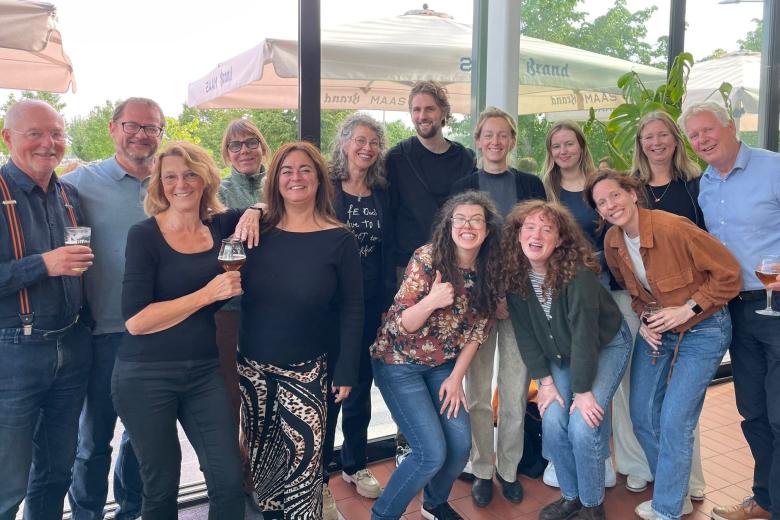Major EU funding for ambitious brain project
The European Commission has signed a 150 Million Euro grant agreement to fund the Human Brain Project (HBP) during its final phase from 2020-2023. FPN’s Rainer Goebel leads one of 3 science work packages that investigate and model brain networks at multiple spatial and temporal scales. At the interface of neuroscience, AI and neurorobotics, Goebel's work package creates biologically-inspired cognitive architectures that serve as "brains" for robotic systems. The international project that Goebel oversees received a 15 million Euro budget from which 3 million are available for his team at the Department of Cognitive Neuroscience at the Faculty of Psychology and Neuroscience.
Professor Goebel’s project is one of three science work packages that investigate and model brain networks. These packages are part of the Human Brain Project (HBP), an ambitious and long-running EU project which has entered its final phase. The European Commission has just signed a 150 million euro grant agreement to cover the three-year period that ends in 2023.
“It is a great honor to lead this important interdisciplinary scientific project of the HBP integrating the work of researchers from disciplines as diverse as neuroscience, AI, robotics and neuromorphic hardware. Together with Mario Senden, Yannick Morel and a growing team of modelling experts at the Department of Cognitive Neuroscience, the obtained funding enables us to contribute to our understanding of embodied cognition. Our goal is to bring more brain knowledge into AI and deep learning and to use insights from modelling to advance our understanding of how brain-like neural networks perform perception, cognition and action.” - Rainer Goebel
For more details, see “Human Brain Project announces new phase”.
Human Brain Project
The Human Brain Project (HBP) is the largest brain science project in Europe and among the biggest research projects ever funded by the European Union. At the interface of neuroscience and information technology, the HBP investigates the brain and its diseases with the help of highly advanced methods from computing, neuroinformatics and artificial intelligence, and in turn drives innovation in fields like brain-inspired computing and neurorobotics. Read more.
EBRAINS
As a lasting contribution to the global science community the HBP has developed EBRAINS, an open European research infrastructure that allows scientists and technology experts to seamlessly collaborate, accelerating advancements in the fields of neuroscience, computing and brain-related medicine. Read more.
Also read
-
Most prestigious European grant to two UM scientists
Two Maastricht University professors are to receive the most prestigious European research grant for individual researchers: an ERC Advanced Grant, worth over €2.5 million. They are Lorenzo Moroni (MERLN) and Alexander Sack (FPN).

-
CIAO extends cooperation with UWV for four years
The Centre of Expertise for Inclusive Organisations (CIAO), under the banner of the Faculty of Psychology and Neuroscience at Maastricht University, has extended its successful cooperation with the UWV (Uitvoeringsinstituut Werknemersverzekeringen) for four years. We spoke to Gemma van Ruitenbeek...

-
Brain stimulation in people with neglect
Marij Middag (PhD Candidate) and Teresa Schuhmann (Professor of Clinical Applications of Non-invasive Brain Stimulation) from the Department of Cognitive Neuroscience at the Faculty of Psychology and Neuroscience, have recently published their paper Alpha transcranial alternating current stimulation...